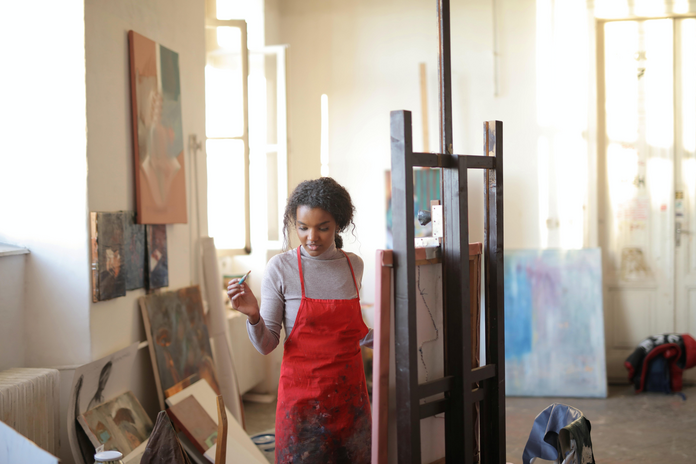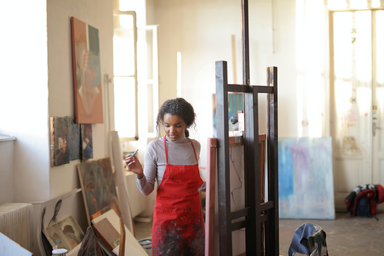Remember March 2020? We were halfway through Spring semester—on spring break if your schedule is like my University’s. We all remember what happened: the slow cancellation of classes for the week, then the semester, and then perhaps indefinitely. In the overwhelming quiet of isolation, many of us turned to art as a way of processing our emotions. We painted portraits of our pets, streamed Doja Cat endlessly, and binged watched all of Tiger King in single sittings (although perhaps referring to Tiger King as art is a bit of a leap). In the face of ceaseless uncertainty as to when we could socialize again, we found ways to connect through our shared interests in art. This period of time connected us to our humanity, deepening our understanding of our own needs and allowing us to access empathy for one another. And so in the spirit of the pandemic and all of its glory, I urge you to continue to support the arts community.
A year after the pandemic hit the United States and cancelled all in-person artistic performances, artists are continuing to struggle in the aftershocks of missed opportunities. While many artists are continuing to explore their work and have adapted to the realities of COVID-19, I think there is no way to fully articulate the loss that has been suffered by the arts community. Temporary “fixes” and compromises that sustained the arts through the first year of the pandemic are now transitioning into permanent consequences, often resulting in the closure of arts organizations. The only way that this can be prevented is through a bolstering of the arts community. The expectation that online performances and galleries should remain free in order to receive engagement is damaging to the validity of artists’ needs. While many arts organizations only wish to support their own communities during this difficult time, we cannot disregard the realities of how COVID-19 has drained the resources of the arts community. During spring 2020 we leaned on art for our own personal needs; let’s use 2021 as an opportunity to give back to art through active engagement and activism.
No matter what stage of life you are in, there are many ways that you can support the arts community on a personal level. If you know an artist and are looking for a new arts piece, set up a commission with them! This creates opportunities for them to keep working and will help them to continue practicing their artform. Perhaps you follow an artist on Instagram and admire their work—why not buy from them directly? Ordering from their offerings and then posting about your purchase online is a great way to share in the joy of art on social media. If you took up a new artistic practice during the pandemic or want to learn something new, you can participate in a virtual arts class to better your own artistic skills. Many small arts businesses and individual artists will offer lessons and workshops that are fun and accessible for artists of all abilities. Not everyone has the means to donate to their local arts organizations, but you can still bring financial security by fund-raising, and sharing arts opportunities within your network. You can even ask that your loved ones find ways to support the arts community when offering you gifts for your birthday or thinking of ways to celebrate your achievements.
If none of these ideas work for you, do as artists do and think creatively! Find ways to give back to your local arts scene by reaching out to organizations and asking them directly what you can do to help. Prompting your workplace and peers to do the same will continue this chain of outreach and create change. These methods of supporting the arts may seem inconsequential, but their impacts are great and ripple out through the community. Just like brushstrokes on a painting, very single action of rapport matters—no matter how small. So I ask that you join me in committing to support the arts during 2021—dirty your hands in the soil that will grow flowers of artistry for future generations. Let’s make something beautiful together that we will remember beyond COVID-19.



